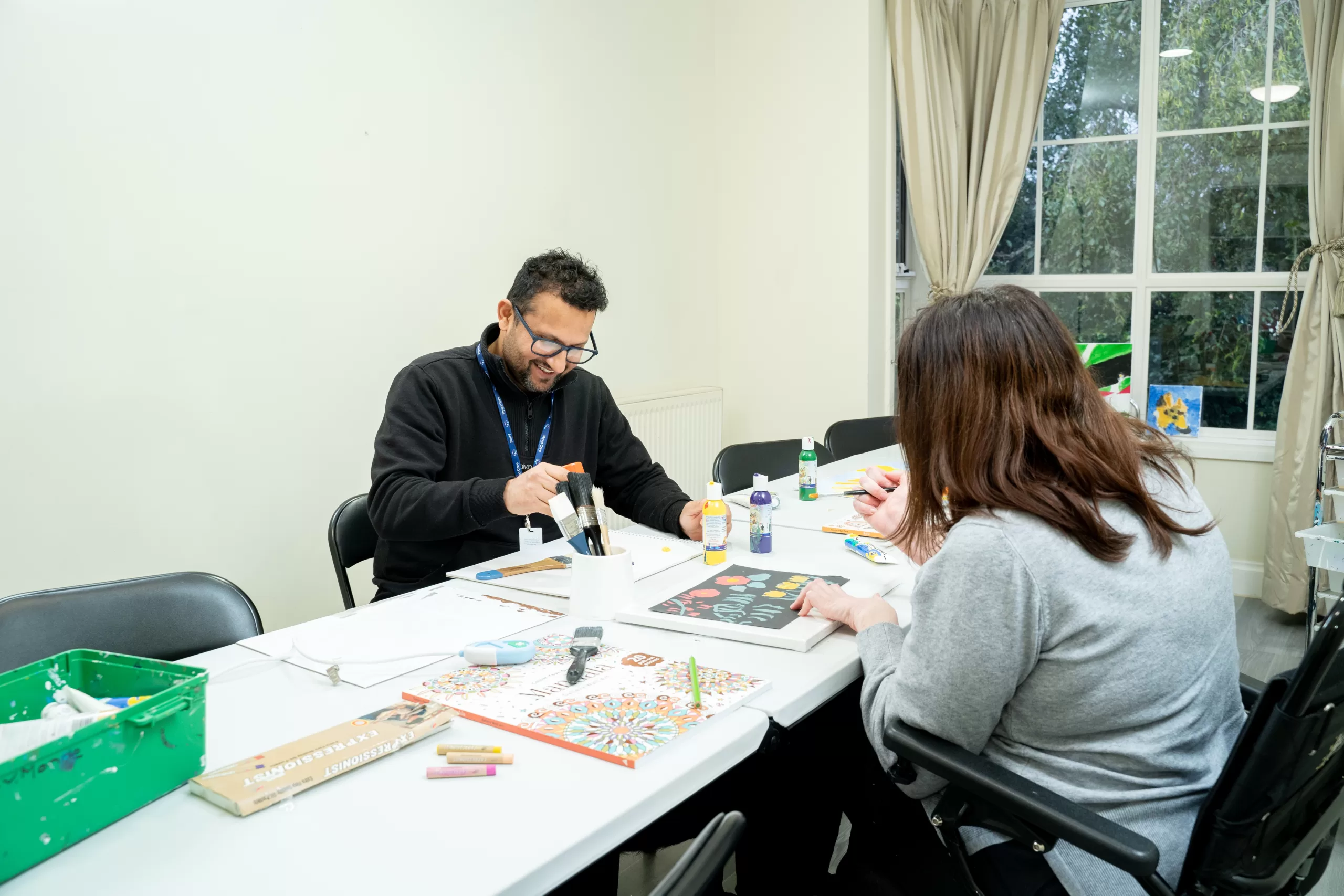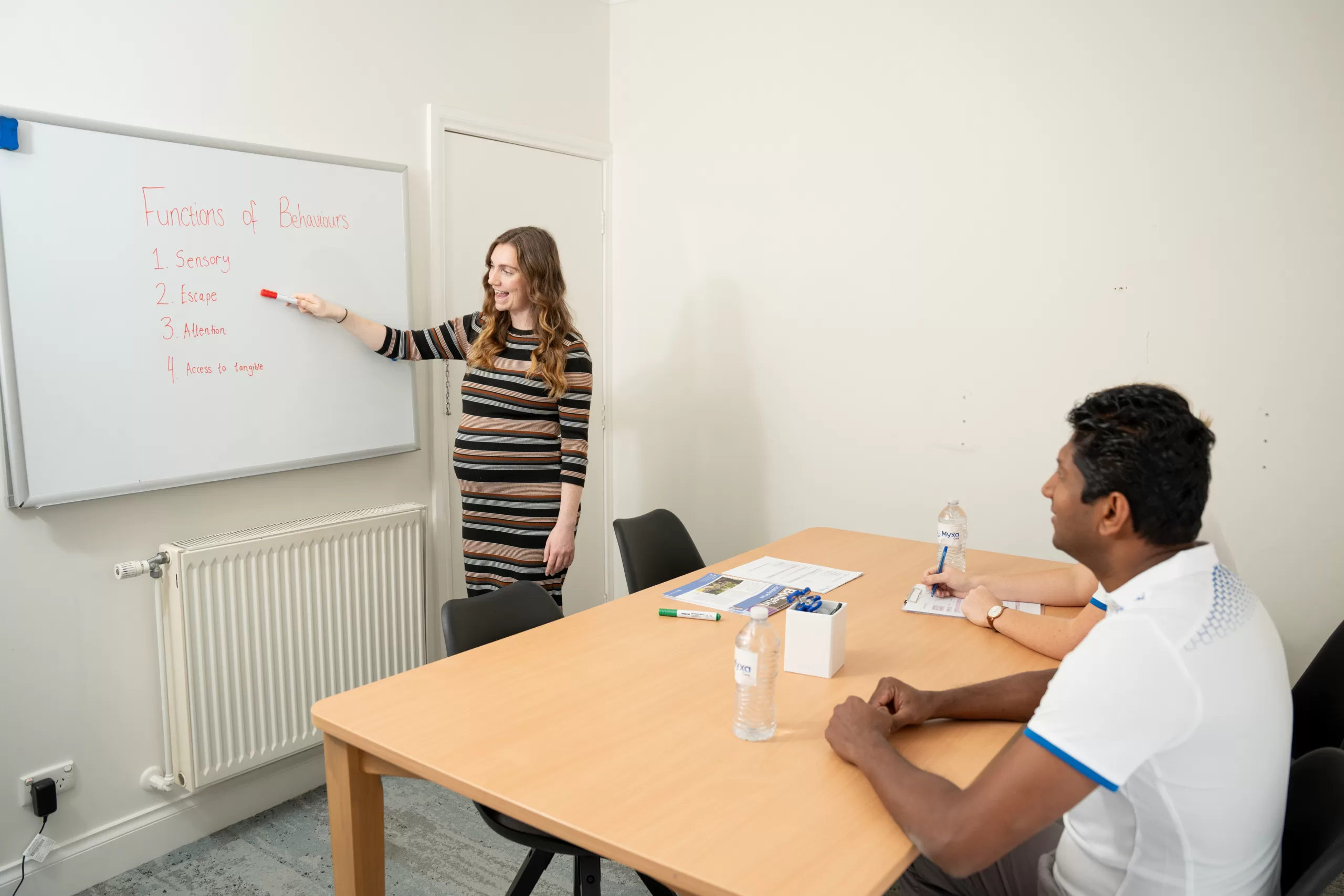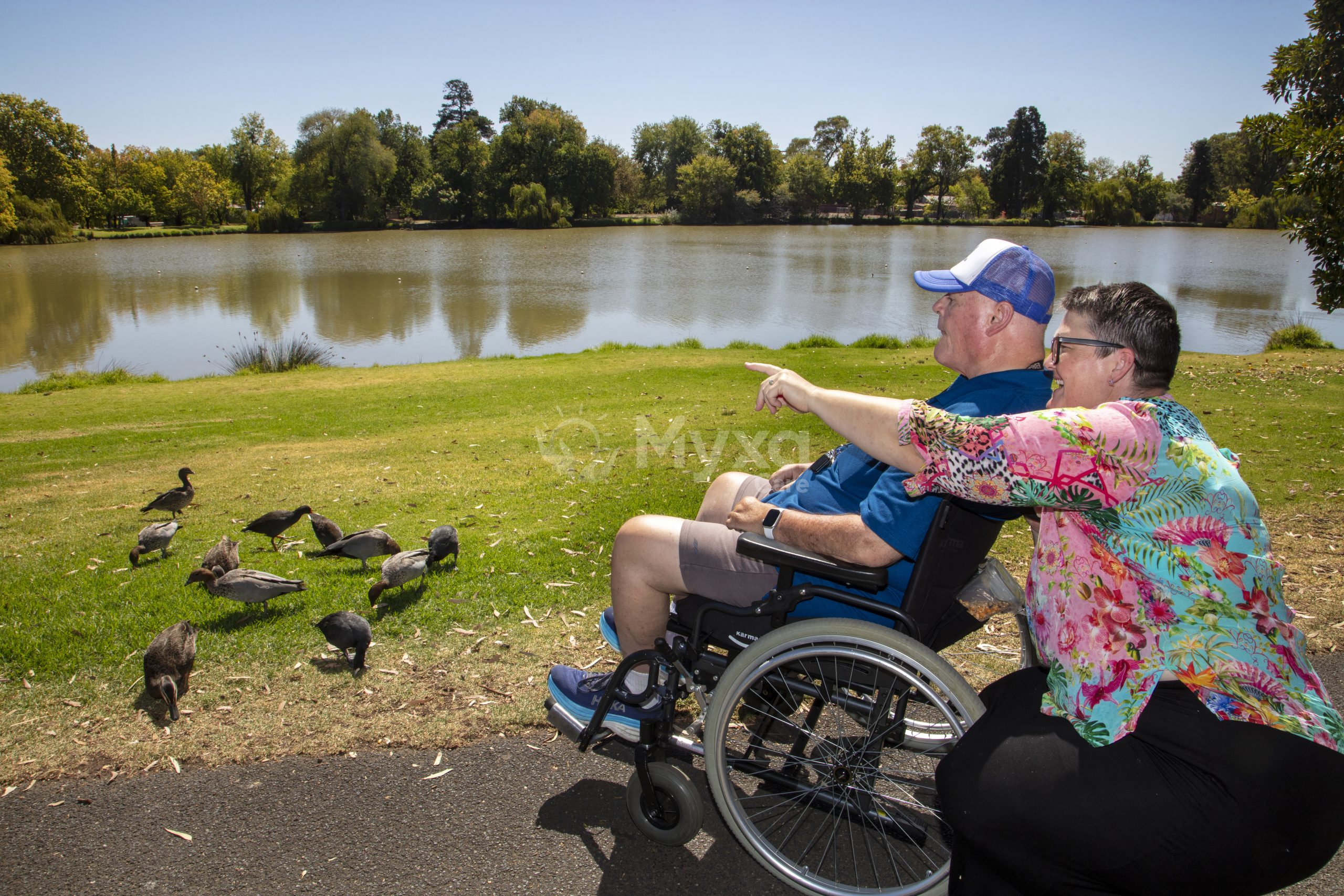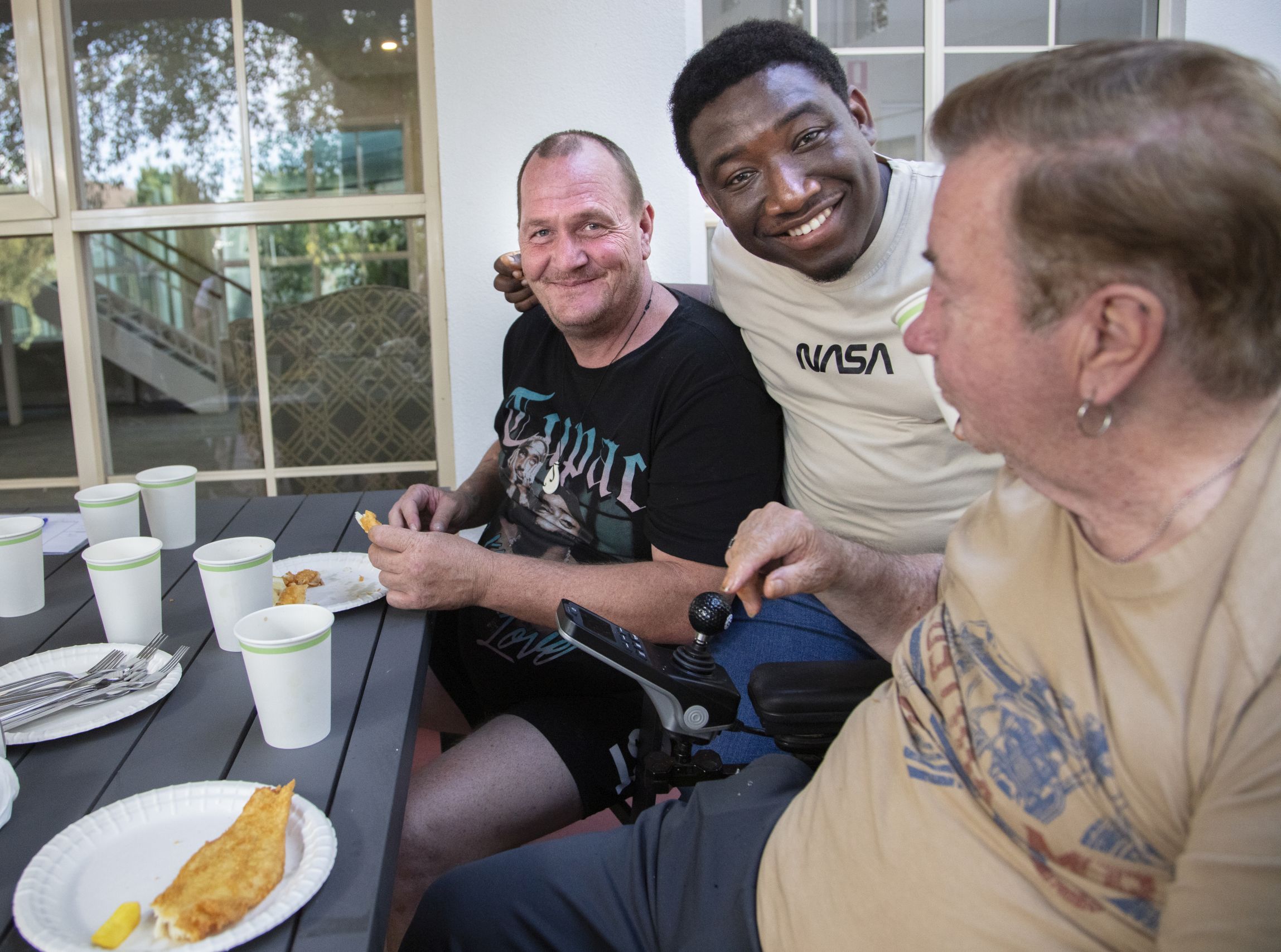


Our positive behavioural support professionals partner with you, your family, and your support network to really get to the heart of what’s causing challenging behaviours. We focus on your strengths and preferences, aiming to lessen these behaviours while boosting your social and emotional well-being. It’s all about creating a supportive environment where you can develop skills, feel more independent, and be part of the community.
We help people with disabilities who present with challenging behaviours like inappropriate actions, physical or verbal aggression. We tailor positive behaviour support NDIS plans to help them manage these behaviours and live happier lives.

Are you seeking effective solutions to support clients with complex behavioural needs? This is why you should partner with us.
We understand that every individual is unique, and so are their behavioural support needs. Our PBS assessments and plans are all tailored to the individual.
Our PBS team are experts in their field, having successfully supported individuals with a wide range of behaviours of concerns, including those with forensic backgrounds, severe mental health issues, and complex behaviours.
Our PBS services are grounded in the latest research and best practices in the field of behaviour support. We utilise proven strategies and interventions to promote positive behaviour change and improve the quality of life for NDIS participants.
We work closely with NDIS Support Coordinators, families, carers, and other stakeholders to ensure that everyone is involved in the planning and implementation of behaviour support strategies.
In addition to PBS, Myxa offers a comprehensive range of support services to meet the diverse needs of NDIS participants. Our holistic approach is deeply rooted in positivity and understanding delivering customised services, ensuring each individual’s choice and control.
We’ve got a team of registered behaviour support practitioners who are all set to assess your needs and develop a personalised behaviour support plan. This plan usually includes:
Our registered Behaviour Support Therapist will assess your needs and develop a personalised behaviour support plan which will detail the below:
“Instead of seeing someone as ‘challenging,’ we focus on understanding their needs and the situations that might be causing difficulty. We work together with individuals and their families to develop solutions that empower them to make choices, live more independently, and experience a fulfilling life”.

The Concentric Circles of Support model in Positive Behaviour Support (PBS) is a person-centered approach that visualizes the different layers of relationships and support systems surrounding an individual, particularly those with disabilities or challenging behaviors. The core idea is that the individual is at the center, and the circles radiate outwards to include various levels of support, with the closest and most intimate relationships in the inner circles and broader connections in the outer circles.
This level includes people who are paid supports that provide assistance to help the participant with their goals and support needs. This could include:
This level includes people who are not paid supports but do provide regular assistance to help the participant with their goals and support needs. These might include extended family, sporting and recreation coaches, decision makers and guardians.
The next section in a person’s circle of support are those they see on a regular basis including friends and social connections within the community. Regular to one person may look different to another person. It is important to base this off the individual’s engagement and socialising routine as health and disability factors can be barriers to engaging with others as much as a person would like.
It is important to hear from people the person socialises with regularly only if the participant and the person consents to this. Their input might look like supporting an understanding of the participants interests, wants and goals as well as what support that person provides.
Informal Support and Family is the next circle who is consulted about a person's support needs and strategies, developed alongside them as well. Informal Support can look different in a range of circumstances and can include siblings, parents, foster carers, grandparents, uncle/aunt and friends.
Families can also be included in this part of the inner circle. When we use the term family, we include both biological as well as chosen family. Some people may describe close friends or non-blood relatives as family, and they are considered a part of this support category also.
The participant is at the centre of every decision, description, strategy, engagement opportunity, training or plan. They are the first person who needs to be considered and wherever possible the first person who is engaged when a new service commences.
When developing any strategy, the participants wants and needs are the centre of this decision. They need to be aware of the strategy, who implements it, who has to know about it and where it is published.
Unless there is a concern for the person's wellbeing, they can decide to decline or change the strategy at any time. They are encouraged to give feedback and are frequently involved to do so.

This involves talking to the person and their support team to figure out what triggers the likelihood of challenging behaviours. We will evaluate:
Based on the assessment, we’ll create a personalised plan to prevent, respond to and manage challenging behaviours focusing on:


Our PBS team works closely with participants and their support network to develop personalised plans that focus on understanding and addressing the root causes of challenging behaviors.
Restrictive practices are always the last resort. We believe in empowering individuals and fostering independence. While some situations might require temporary use of restrictive practices to ensure safety, our team is dedicated to exploring all other avenues first. We prioritise de-escalation techniques, positive reinforcement, and environmental modifications to minimize the need for restrictions. Additionally, our PBS plans involve a clear strategy for continually reducing and ultimately eliminating the use of restrictive practices whenever possible.
We’ll work with the participant and their support team to implement the plan. Training and support are provided throughout the process. The PBS plan can be adjusted as needed based on progress and feedback.


We’ll create a report for the NDIS Commission outlining the plan and its effectiveness, ensuring you receive the right support to manage behavioural risks.

PBS aims to address the root causes of behaviour, leading to a decrease in their frequency and intensity.

PBS promotes greater independence, empowerment, and well-being for individuals and their families.

Positive behavioural therapy encourages positive interactions and communication between individuals and their support network.
Individuals of all ages with a wide range of disabilities and challenging behaviours, including intellectual disabilities, autism spectrum disorder, mental health conditions, and neurological conditions. Families and carers who support individuals with challenging behaviours.
Our current waitlist time is approximately two to three weeks.
However, we understand that in some circumstances there is an urgent need to work with the participant and their family to provide support.
Examples of an urgent need:
We can offer both face to face in our location or in your home and online telehealth appointments. Please discuss your preference with one of our Behavioural Support Practitioners to determine what works best for you and is in line with your funding.
Appointments can occur in a variety of locations of your choosing, including your home, school, day program or community activity etc.
Face to face appointments in your home etc will incur a travel charge in line with the NDIS price guide.
We have Behavioural Support Practitioners that can provide face to face appointments in Bendigo, Ballarat, Melbourne, Adelaide and soon Queensland.
We also offer telehealth appointments that can provide PBS support to anyone, anywhere in Australia.
You choose who you would like to attend and what makes you comfortable. You may like to have a family member, a friend or a Support Worker. You may also wish to undertake the appointment on your own but need support to travel/set up the telehealth appointment. We strive to offer personalised support and care and want you to feel comfortable.
Functional Behaviour Analysis (FBA) is a systematic approach to understanding why a person engages in behaviours of concern. It is commonly used in various fields such as psychology, education, and positive behaviour support. The goal of FBA is to identify the function or purpose of the behaviour in order to develop effective interventions.
Here are the key components of Functional Behaviour Analysis:
FBA is a collaborative process involving caregivers, educators, therapists, and sometimes the individual themselves (if possible), to ensure that interventions are comprehensive and effective in promoting positive behaviour change. It is widely used in educational settings for students with disabilities, in clinical settings for individuals with developmental disorders or mental health issues, and in organisational settings to address workplace behaviour challenges.
PBS is a person-centered approach that focuses on understanding the reasons behind challenging behaviours and finding positive strategies to address them. It aims to improve quality of life for both the individual and their support network.
PBS, or Positive Behaviour Support, is a collaborative approach to understanding and addressing challenging behaviors. We start by thoroughly assessing your needs and behaviors, then create a personalised plan focused on your strengths and preferences. The goal is to reduce challenging behaviors while enhancing your social and emotional well-being, ultimately empowering you to build skills, increase independence, and actively participate in your community.
Yes, family members, caregivers and allied health professionals are integral to the PBS process. We collaborate with them to ensure a consistent approach across different environments, enhancing the effectiveness of the support plan.
Our Positive Behavioural Support Practitioners are a combination of highly trained professionals from different backgrounds with expertise in behaviour analysis and intervention strategies. They are skilled in developing and implementing effective PBS plans.
To access our PBS services, contact us to schedule an initial consultation. We will assess your needs and work with you to develop an appropriate support plan.
We currently have Positive Behavioural Practitioners servicing Victoria, Adelaide and Queensland.
Please fill out our Referral Form if you, or someone you know is interested in accessing our PBS service.